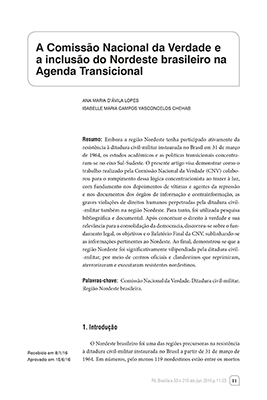Inheritance, opportunity and liberty: are hereditary wealth transfers legitimate under liberalism?
Arthur Cristóvão Prado
DOI: https://doi.org/10.70015/ril_v60_n239_p235
Abstract
This paper discusses the morality of the right of inheritance from a liberal perspective. It focuses on two liberal values: equality of opportunity and liberty. First, it argues that inheritances disturb equality of opportunity, as interpreted by John Rawls and Ronald Dworkin in their respective theories of justice. Because both authors prioritize leveling opportunities over other distributive considerations, they cannot coherently assert that inheritances are just. Second, it argues that any plausible conception of liberty must be justified in moral terms, so that one cannot argue in favor of inheritances simply because restricting it would decrease people’s freedoms. It then insists that there is no morally justifiable basic freedom of inheritance. Finally, it acknowledges that abolishing inheritances is not a feasible goal on the short term. As a policy proposal, it suggests strengthening inheritance taxation instead, and illustrates how that could be done in the Brazilian case.
Keywords
Inheritance; liberalism; taxation; political philosophy; equality of opportunity.
Título, resumo e palavras-chave em português
Herança, oportunidade e liberdade: as transferências hereditárias de riqueza são legítimas sob o liberalismo?
Este artigo discute a moralidade do direito de herança com base numa perspectiva liberal. Centra-se em dois valores liberais: a igualdade de oportunidade e a liberdade. Inicialmente, argumenta-se que heranças perturbam a igualdade de oportunidade, como interpretada por John Rawls e Ronald Dworkin em suas respectivas teorias da justiça. Como ambos priorizam a equalização de oportunidades sobre outras considerações distributivas, nenhum deles pode argumentar coerentemente que heranças são justas. Em seguida, defende-se que qualquer concepção plausível de liberdade deve ser justificada moralmente, de modo que não é possível defender o direito de herança; e simplesmente restringi-lo diminuiria liberdades. Argumenta-se, assim, que não existe liberdade básica de herdar ou deixar herança. Por fim, reconhece-se que abolir heranças não é um objetivo factível no curto prazo. Como proposta de política tributária, o artigo sugere fortalecer a tributação sobre heranças e ilustra como isso poderia ser feito no caso brasileiro.
Heranças; liberalismo; tributação; filosofia política; igualdade de oportunidade.
Como citar este artigo
(ABNT)
PRADO, Arthur Cristóvão. Inheritance, opportunity and liberty: are hereditary wealth transfers legitimate under liberalism? Revista de Informação Legislativa: RIL, Brasília, DF, v. 60, n. 239, p. 235-257, jul./set. 2023. Disponível em: https://www12.senado.leg.br/ril/edicoes/60/239/ril_v60_n239_p235
(APA)
Prado, A. C. (2023). Inheritance, opportunity and liberty: are hereditary wealth transfers legitimate under liberalism? Revista de Informação Legislativa: RIL, 60(239), 235-257. Recuperado de https://www12.senado.leg.br/ril/edicoes/60/239/ril_v60_n239_p235
